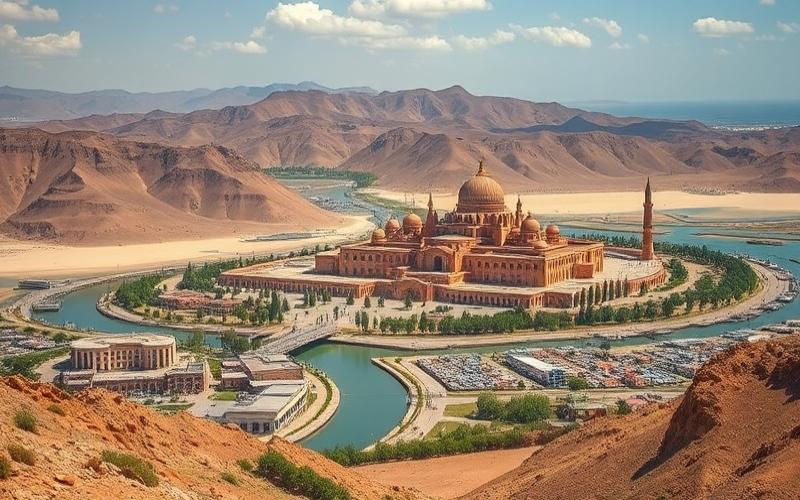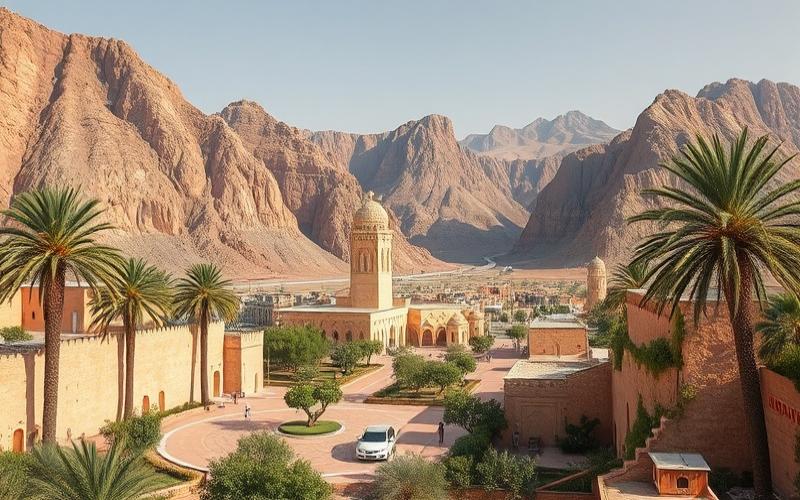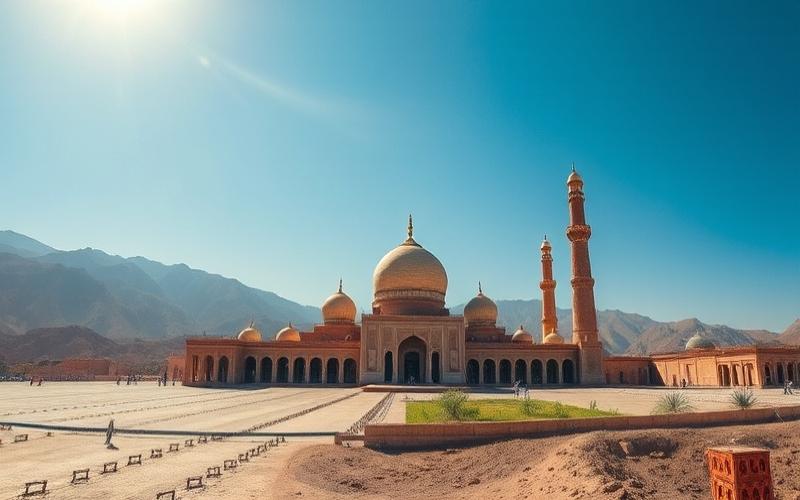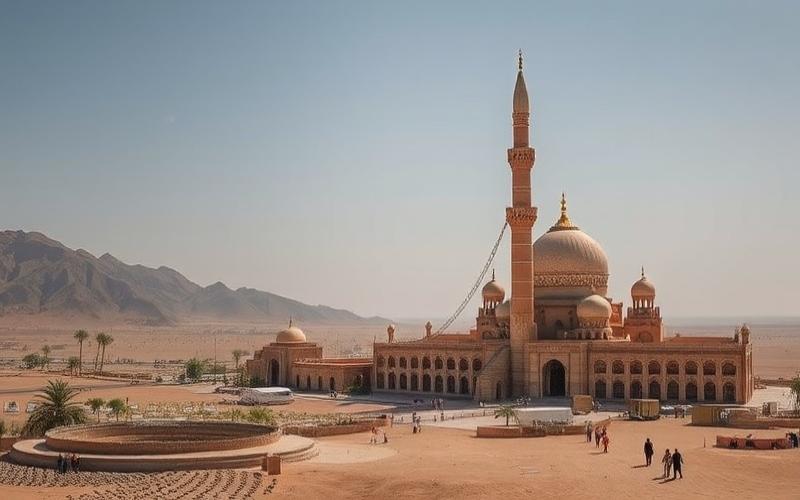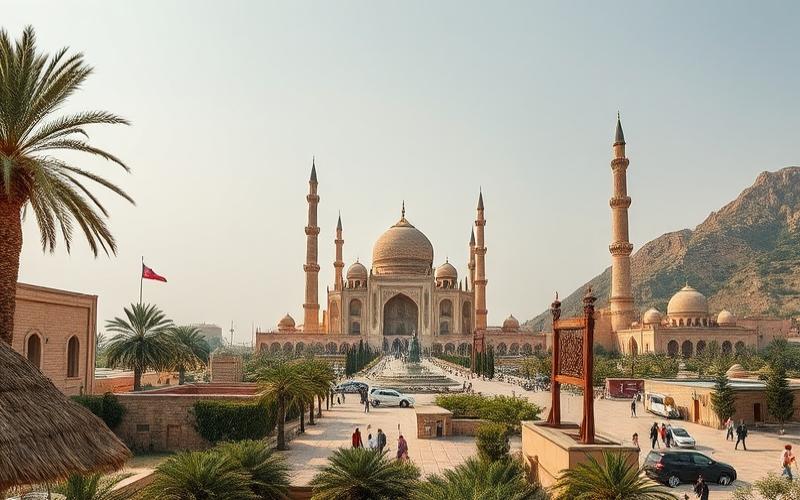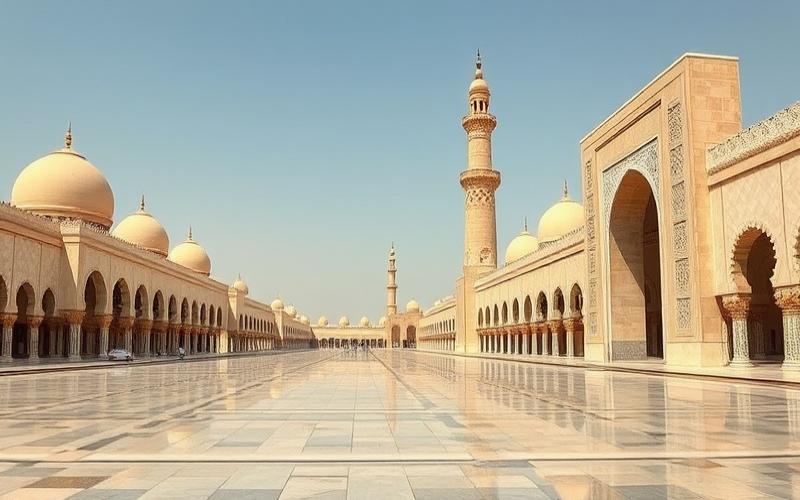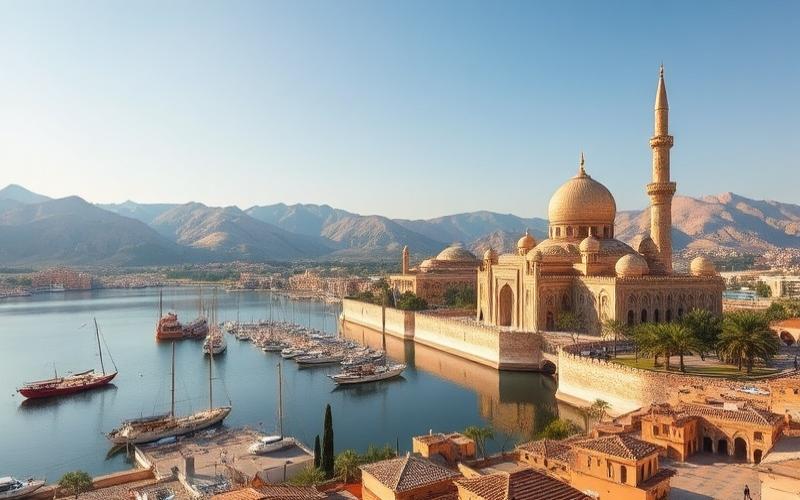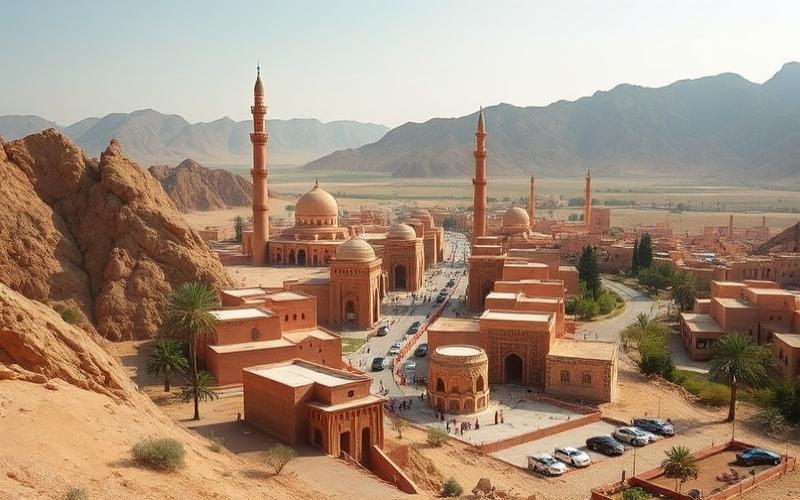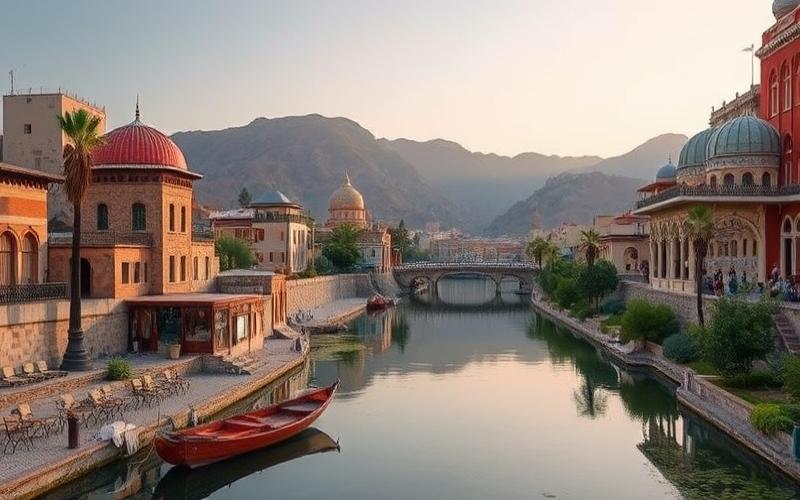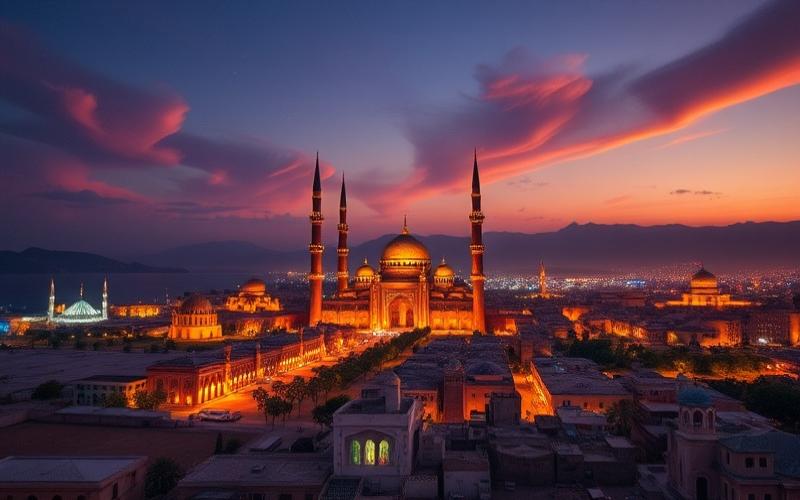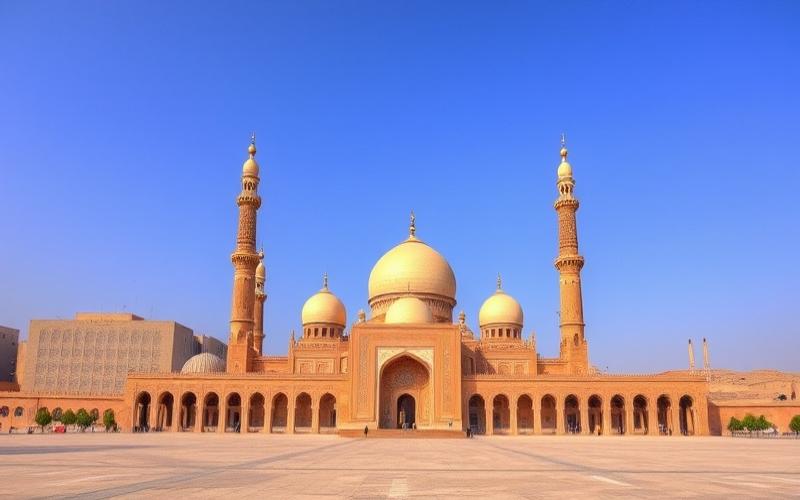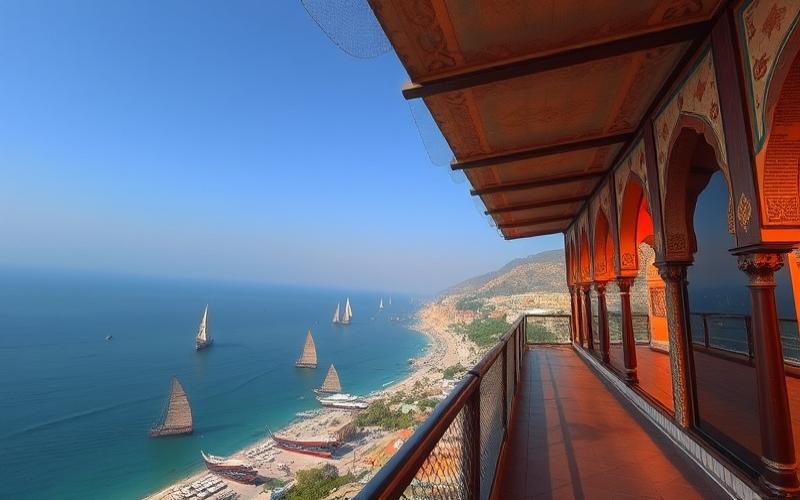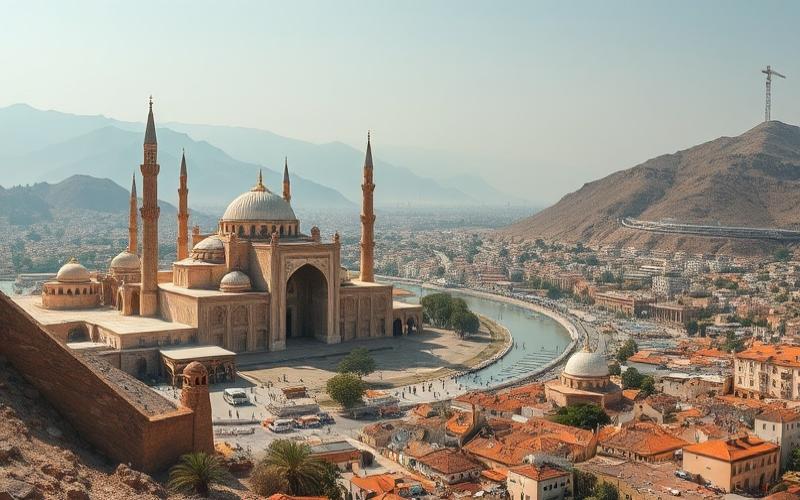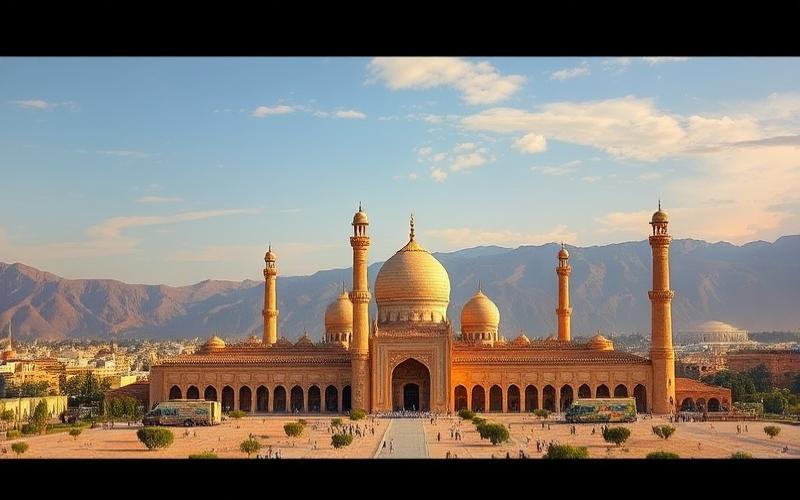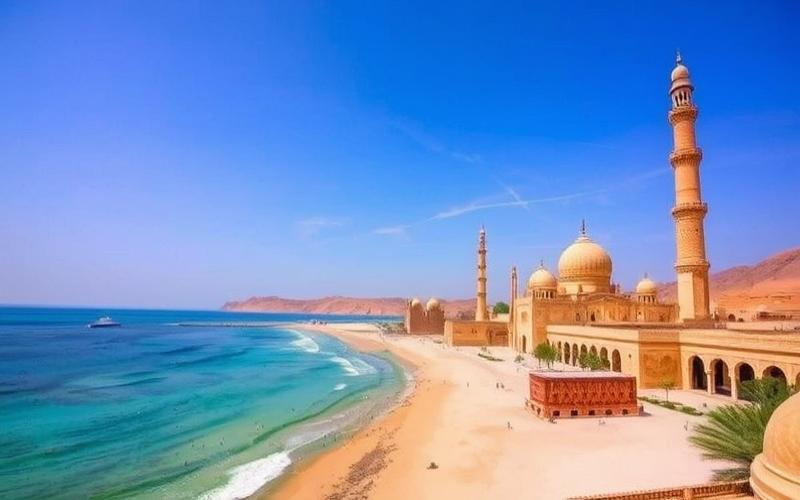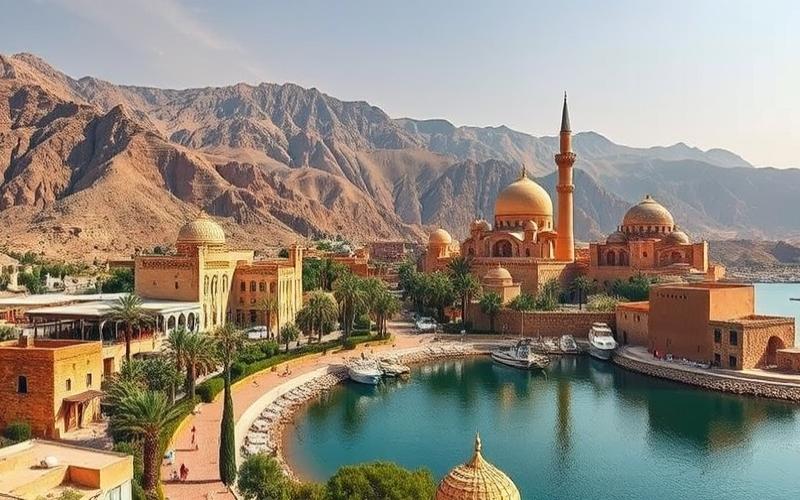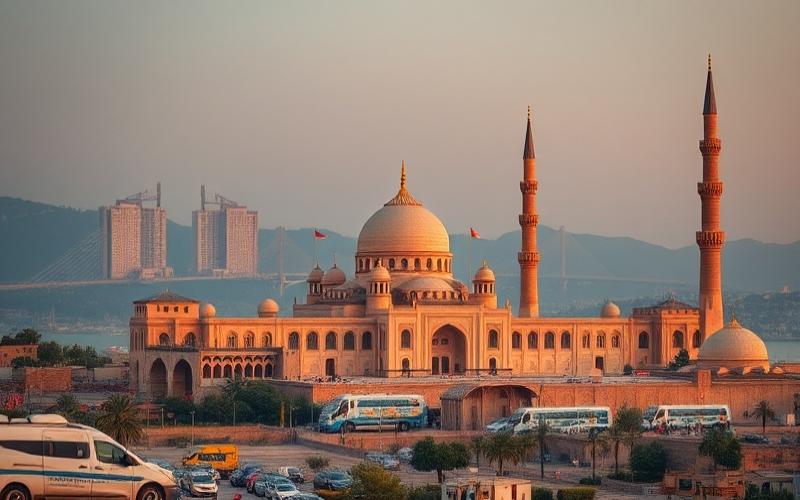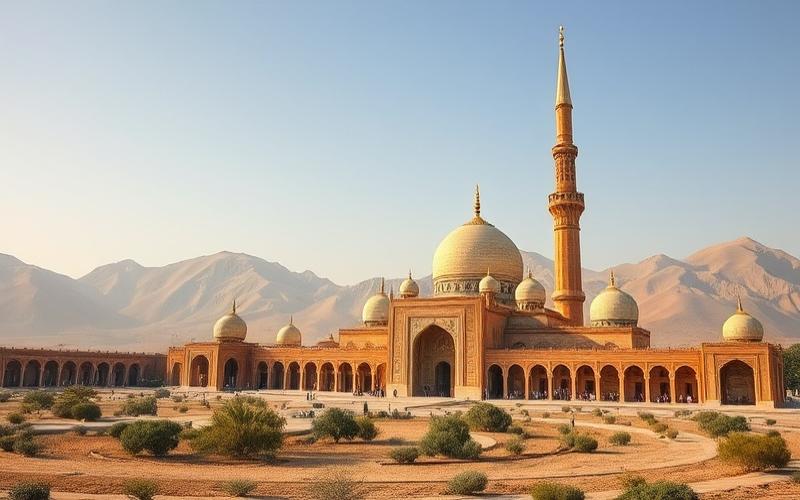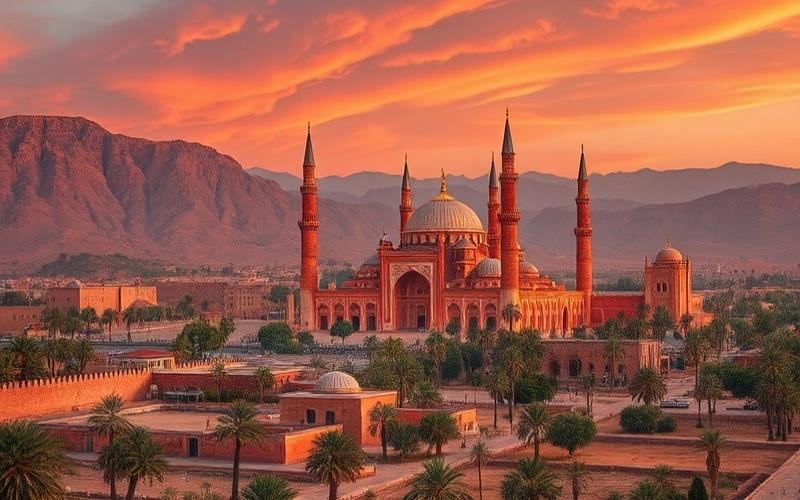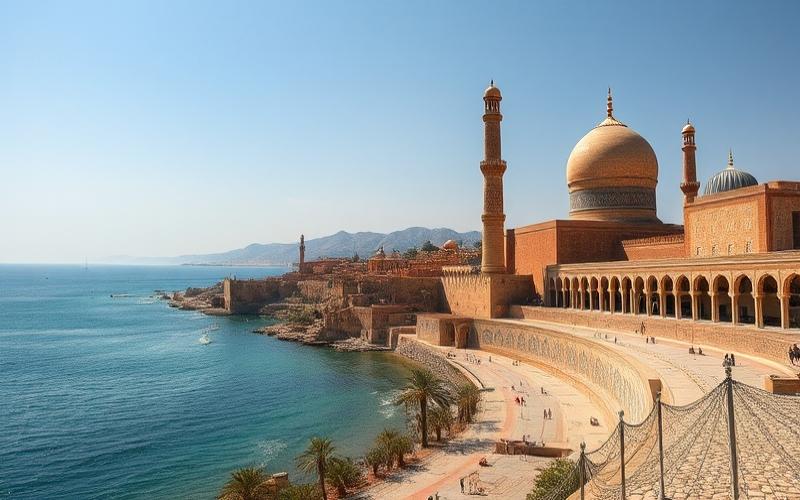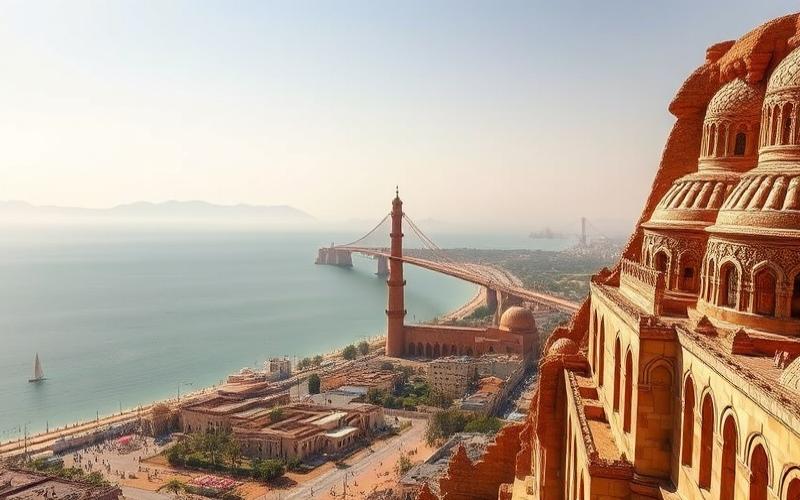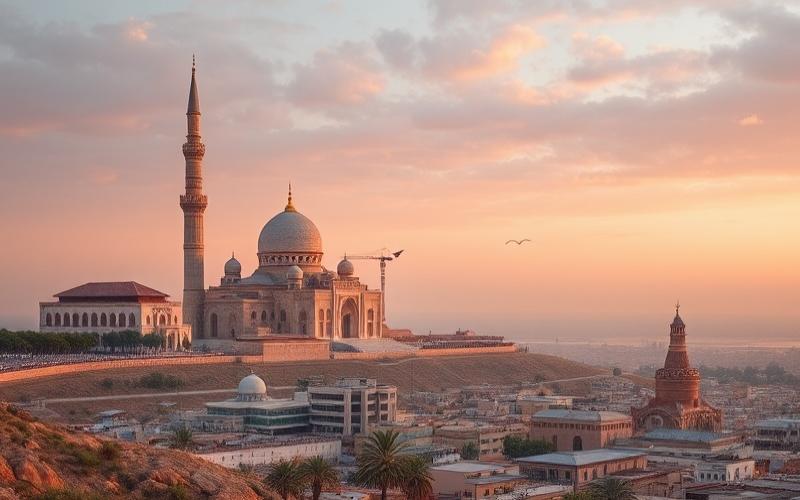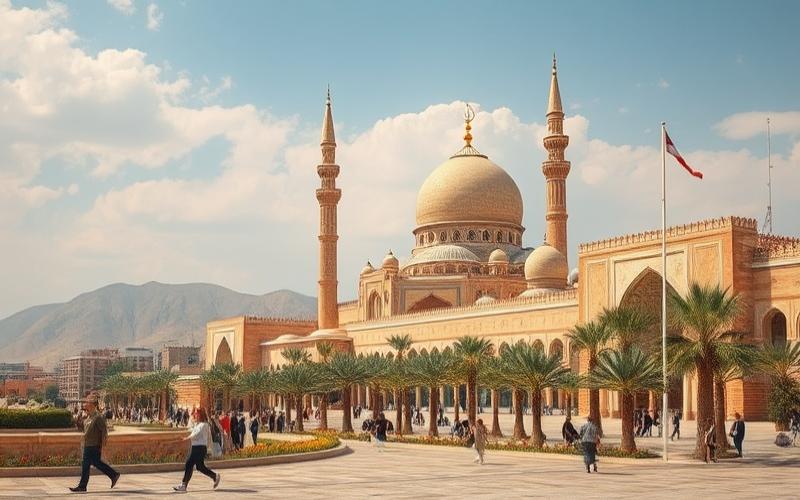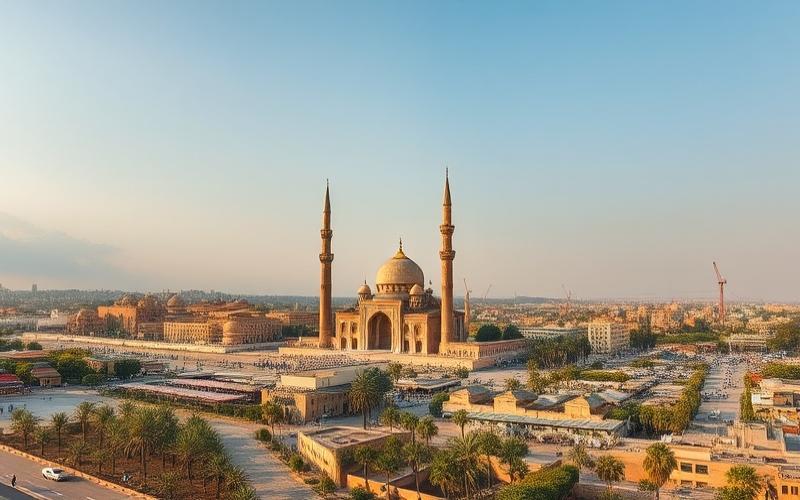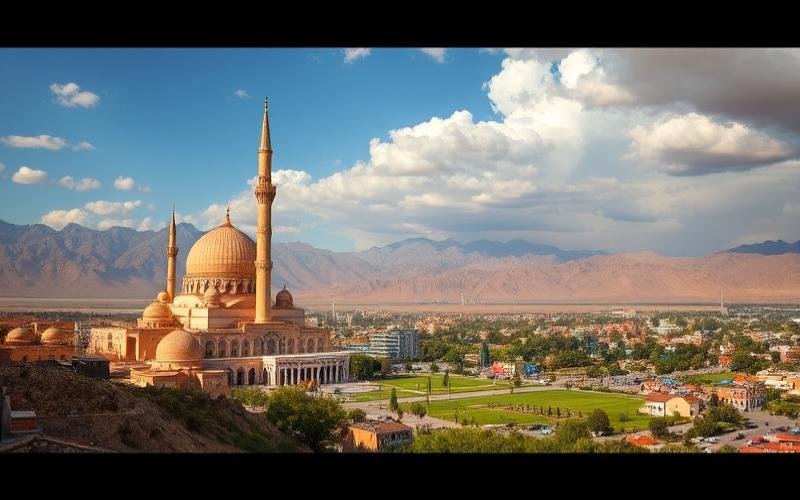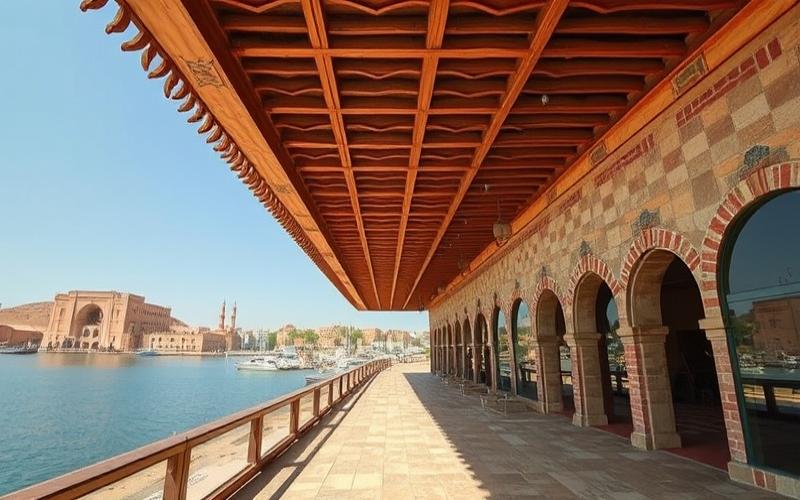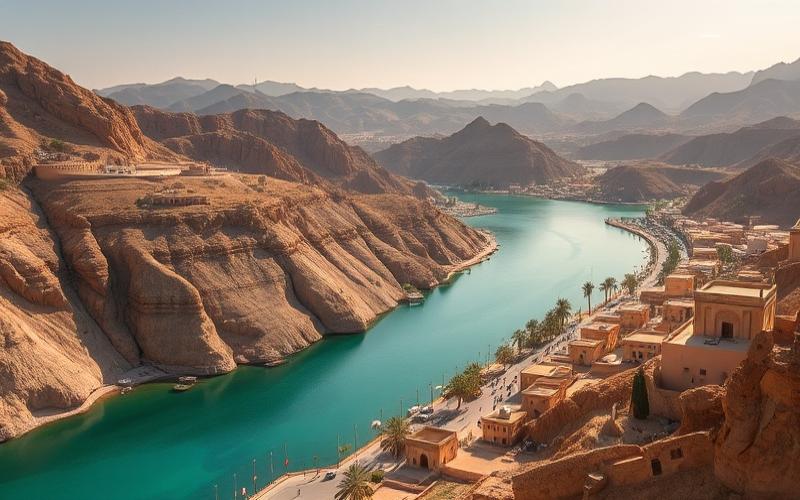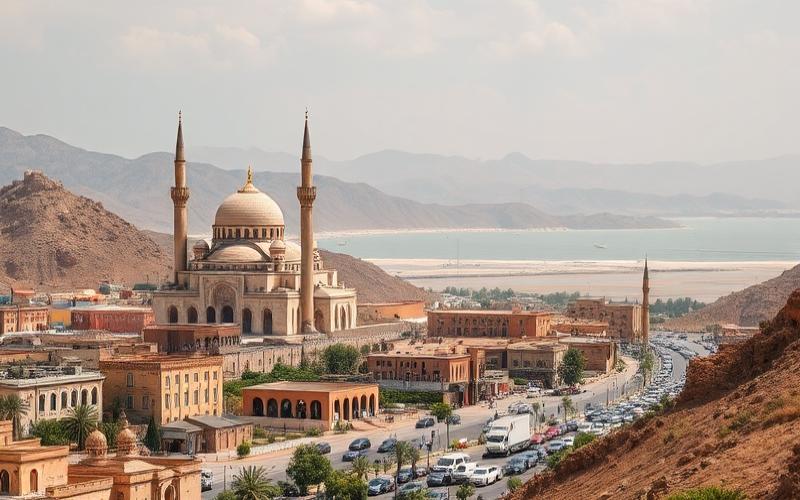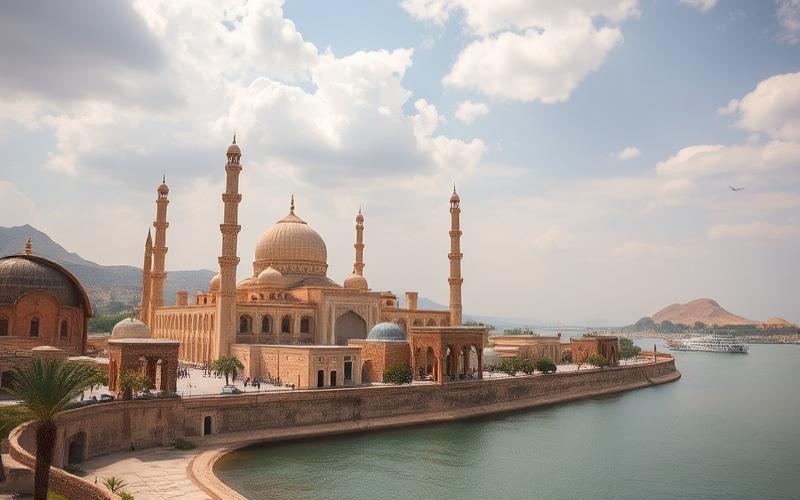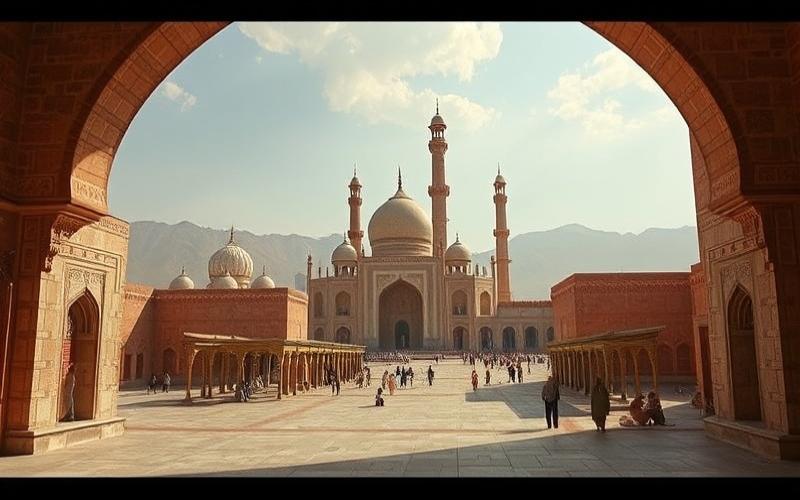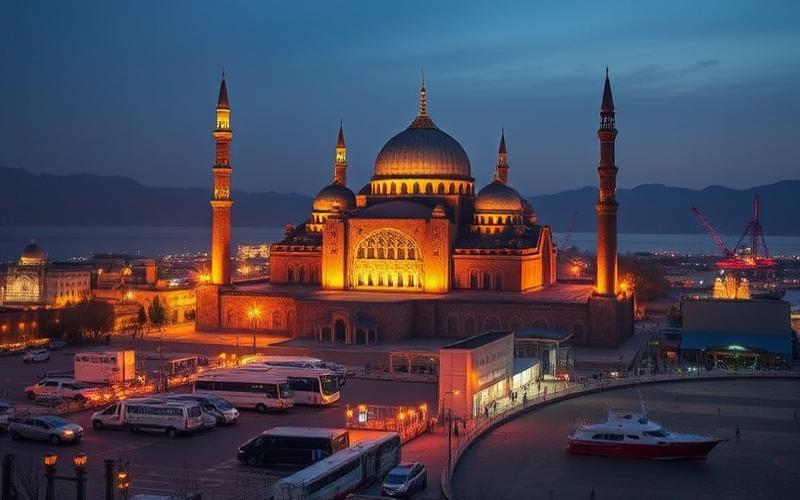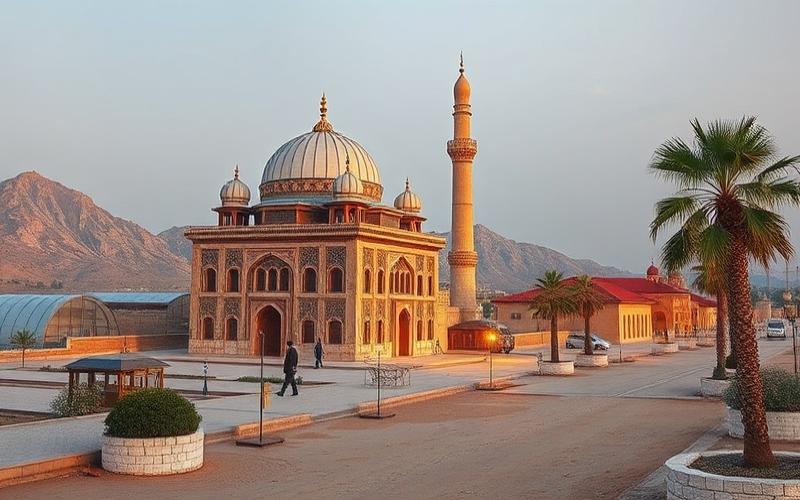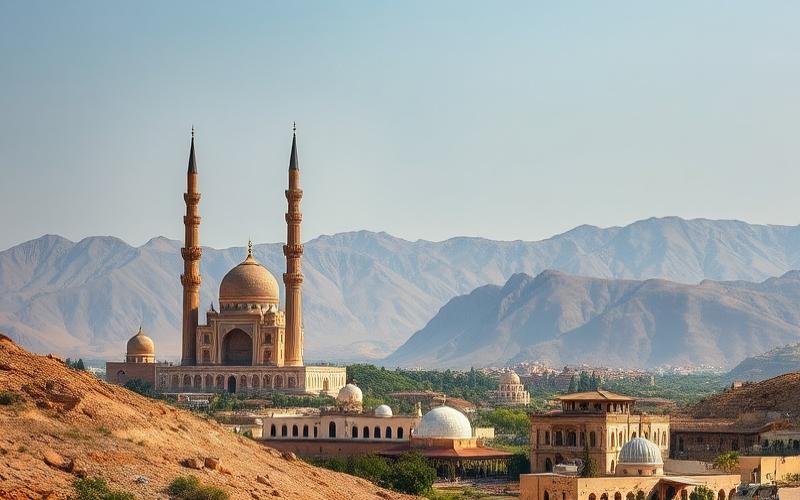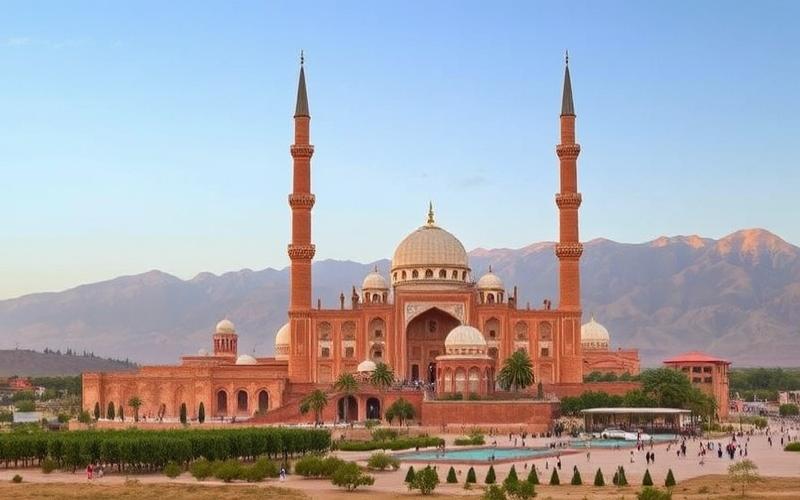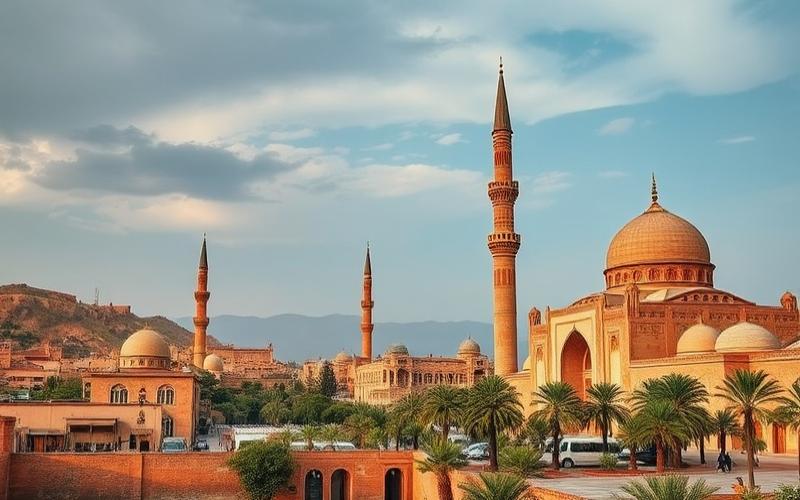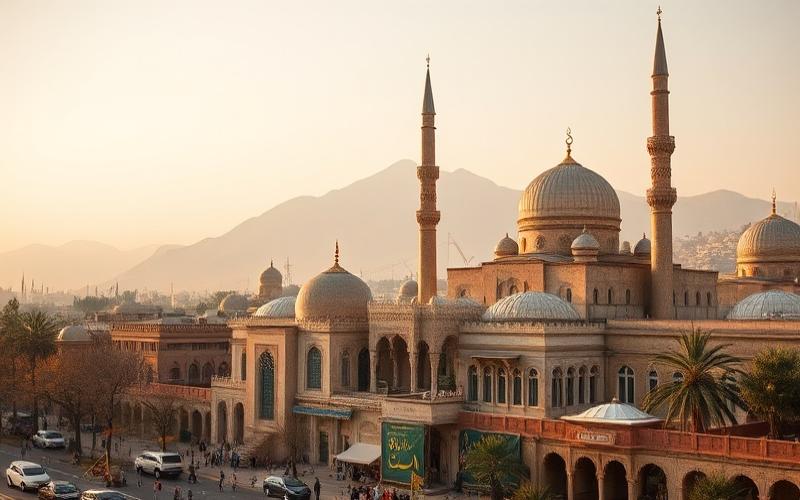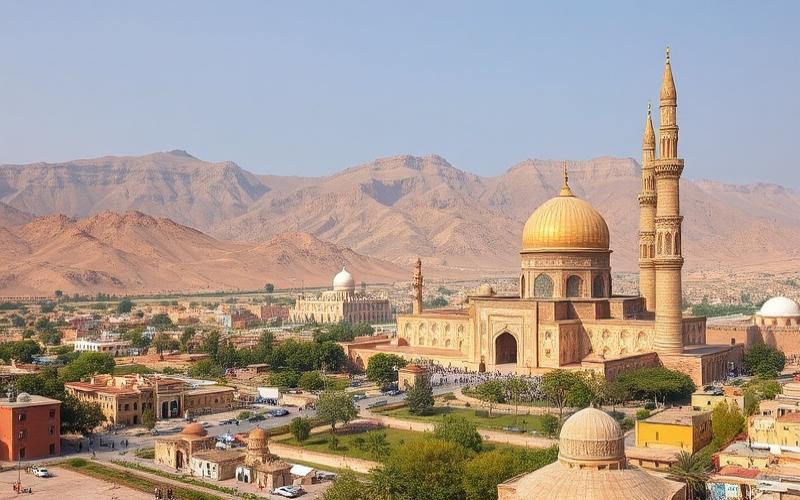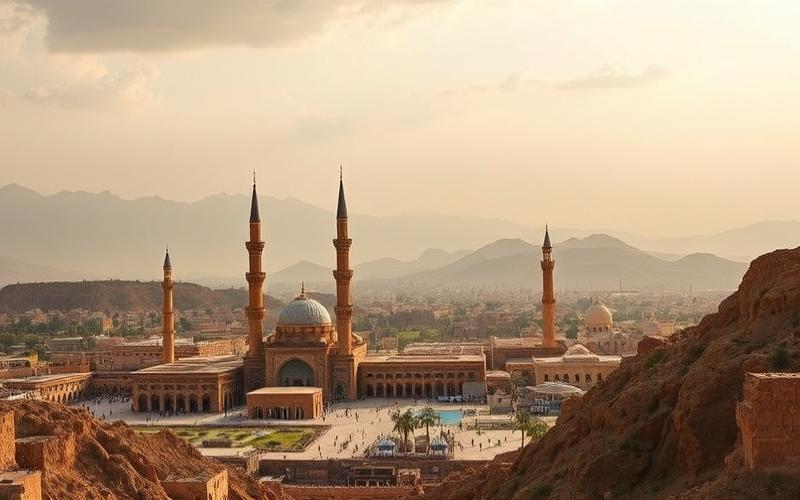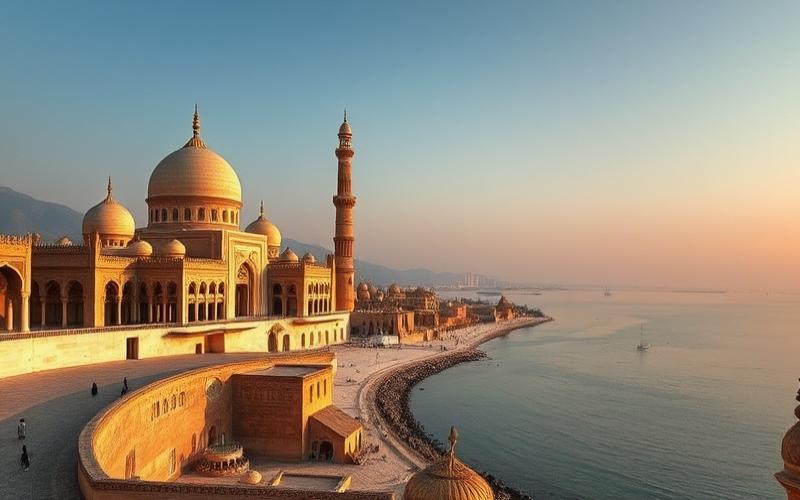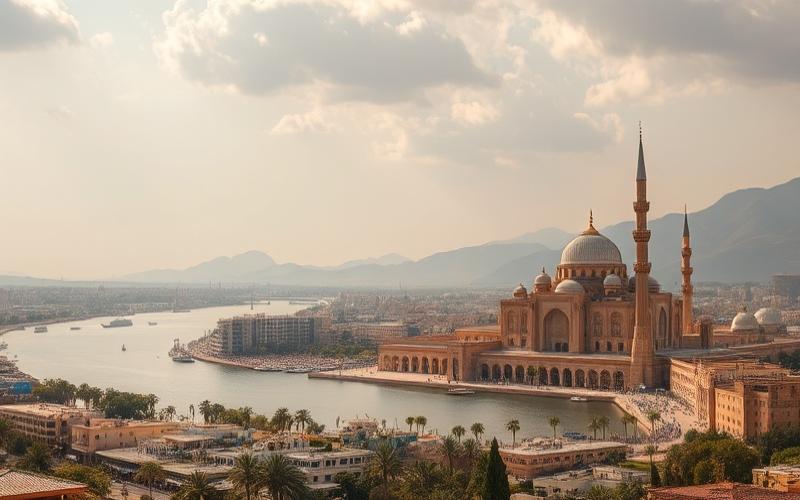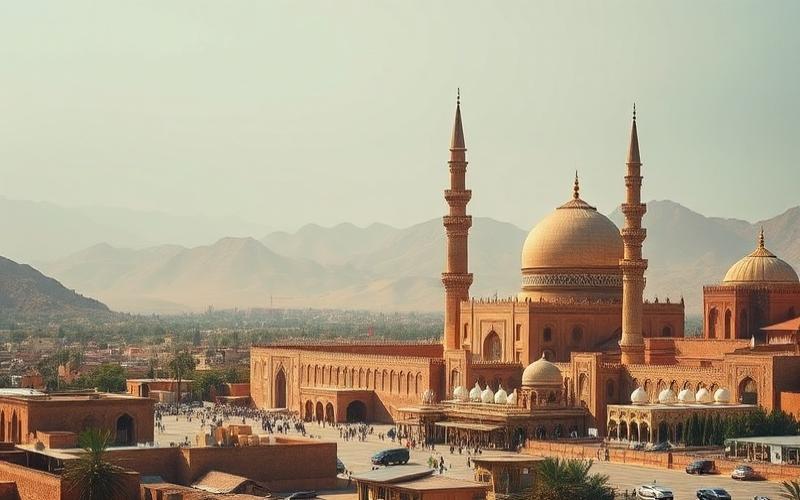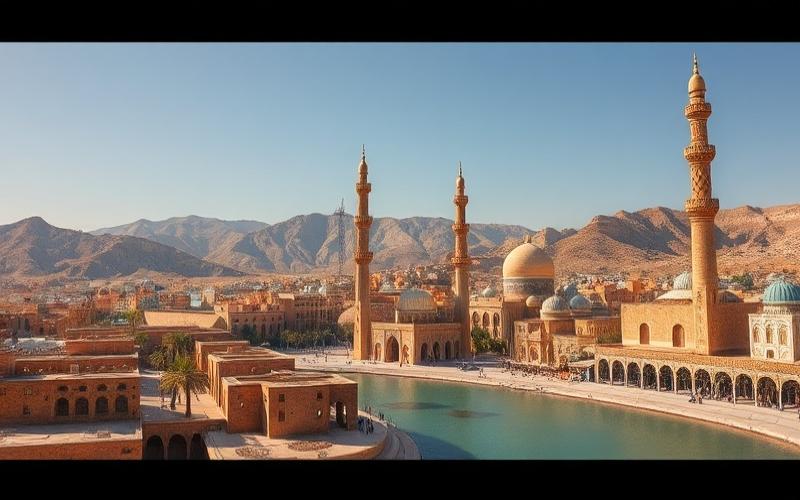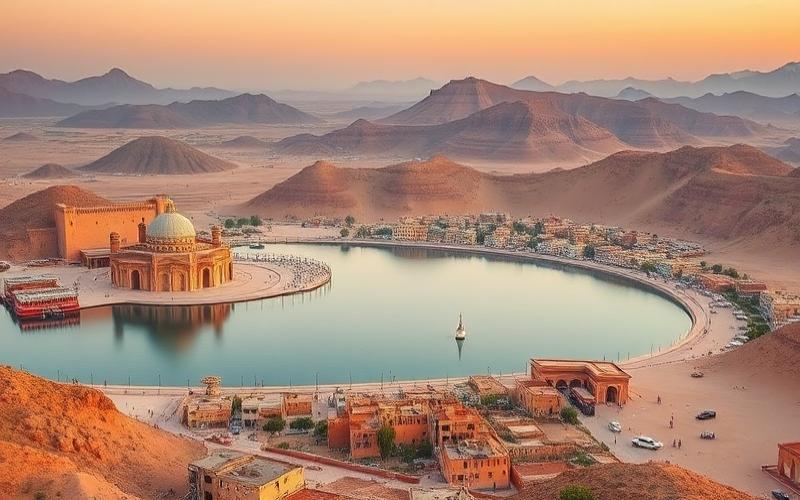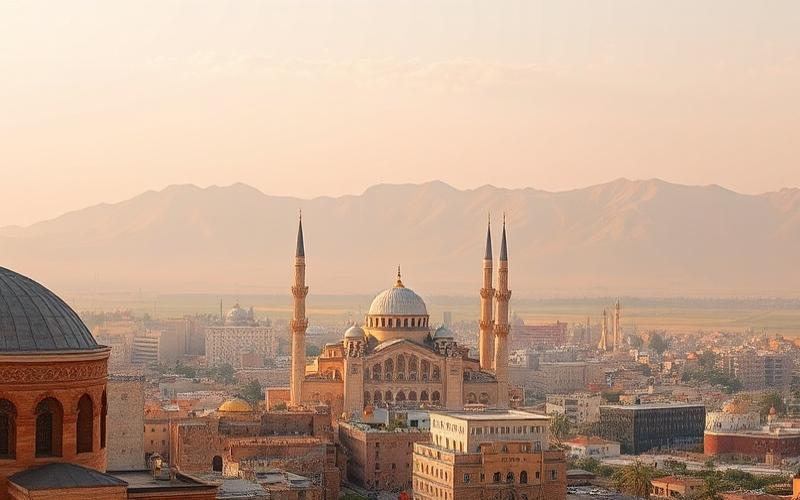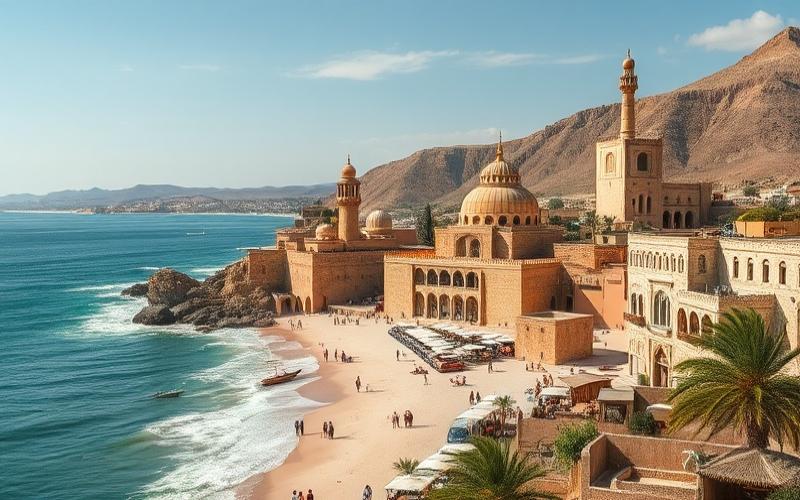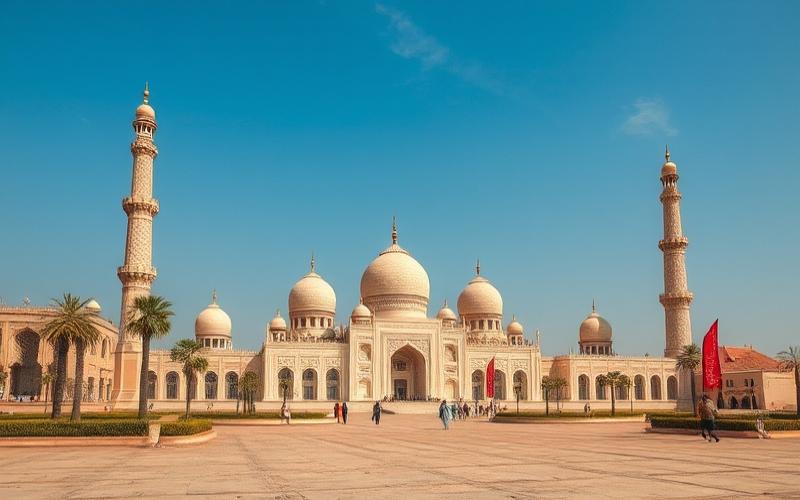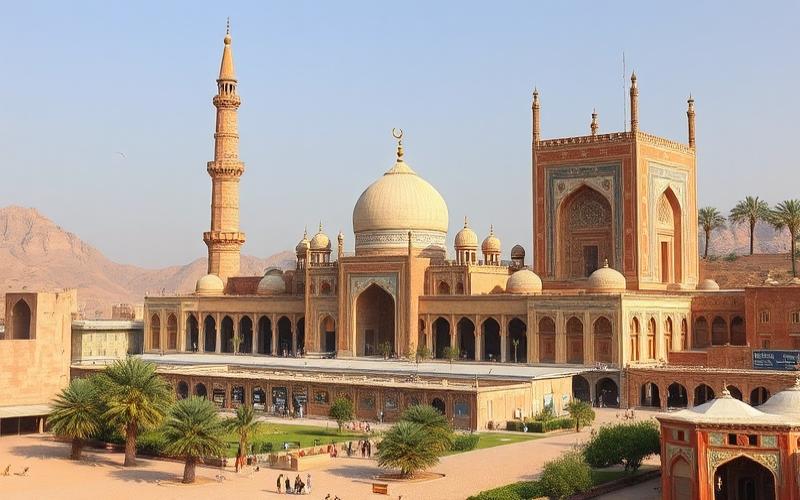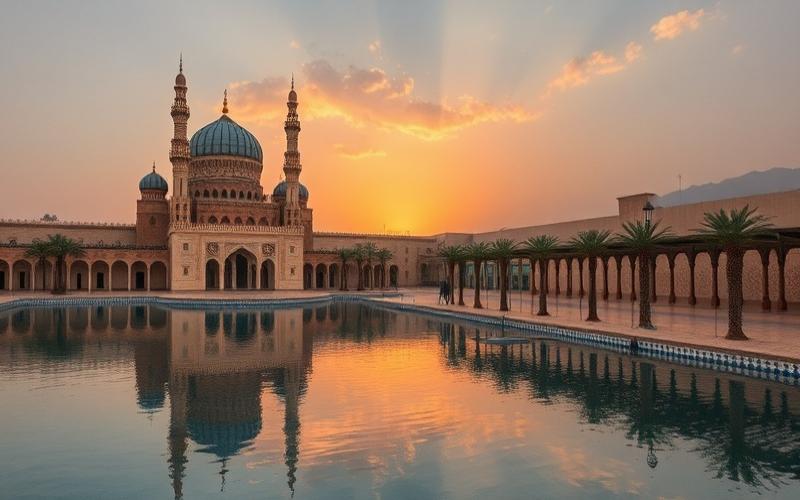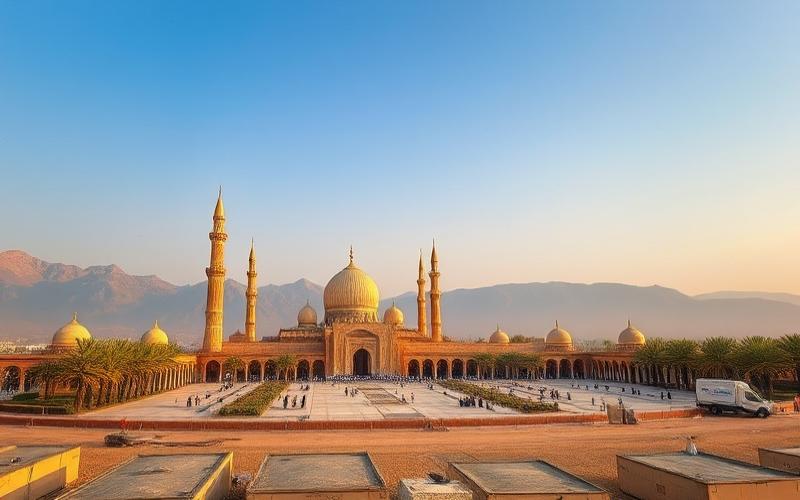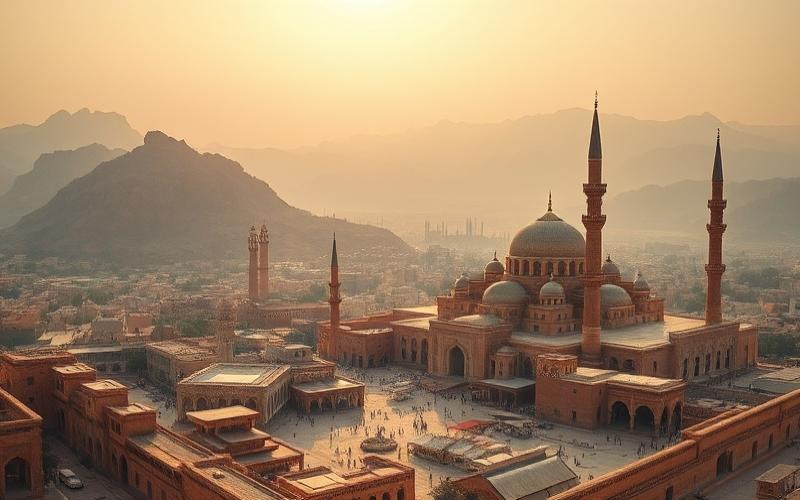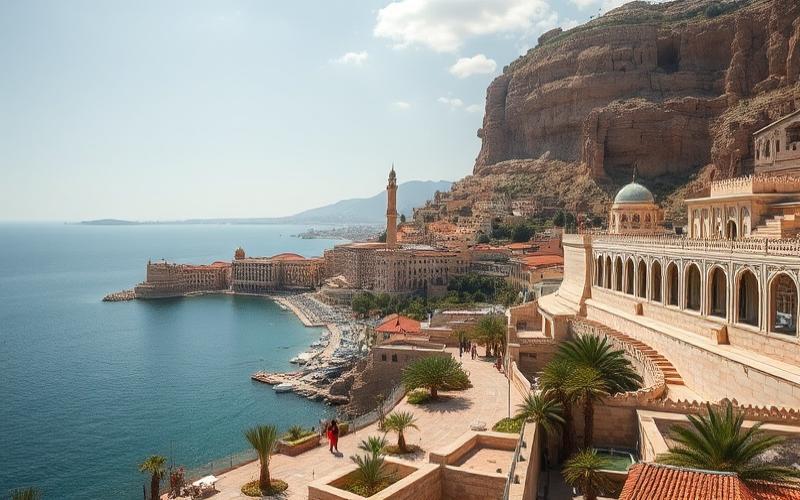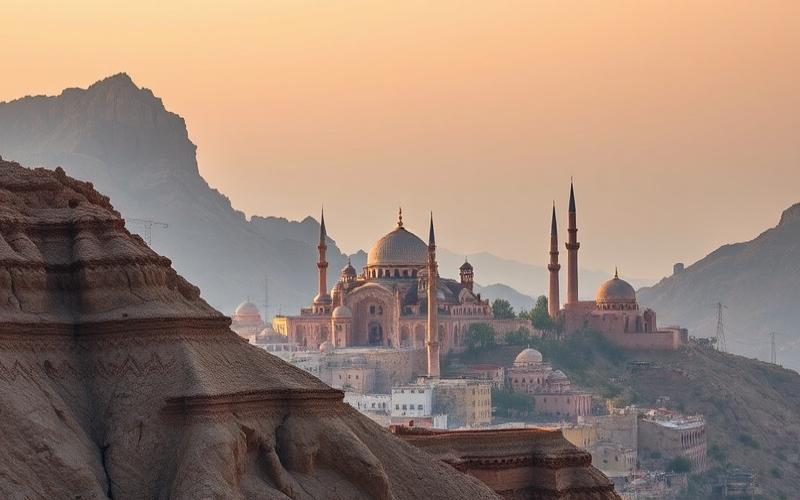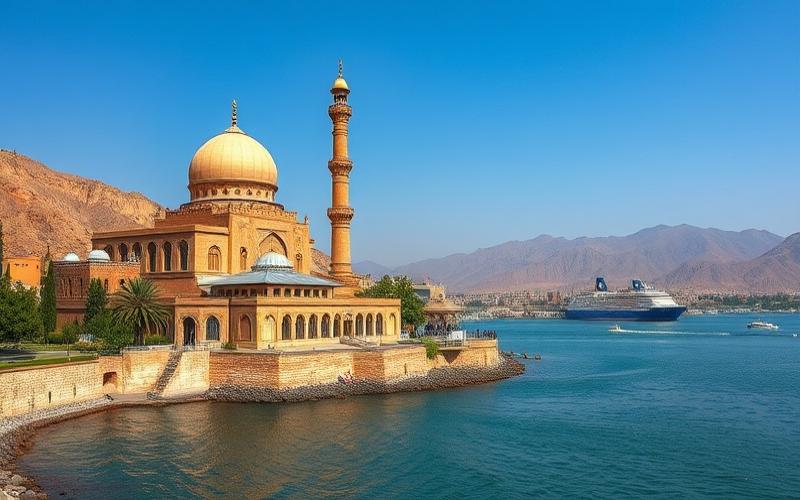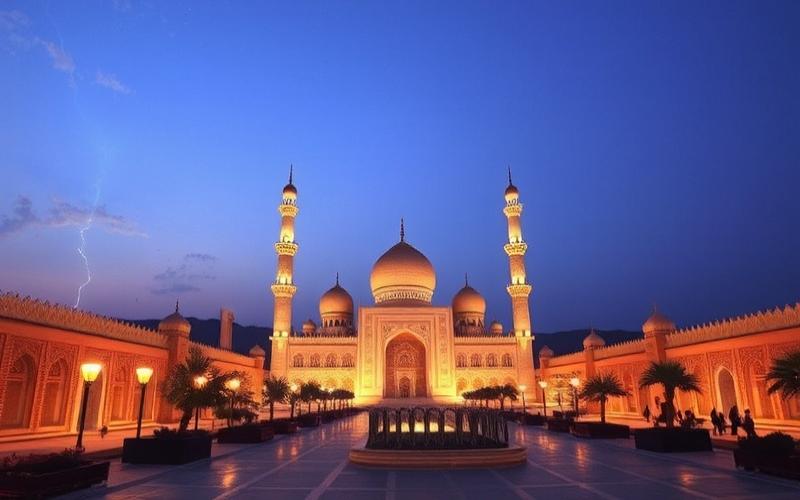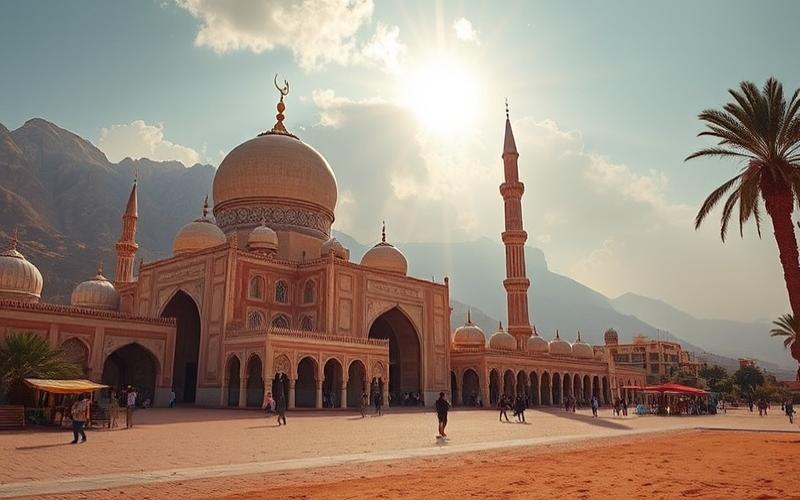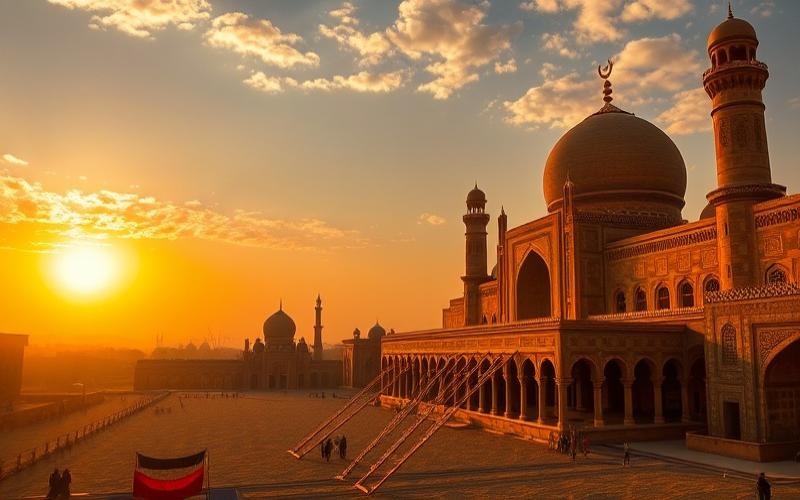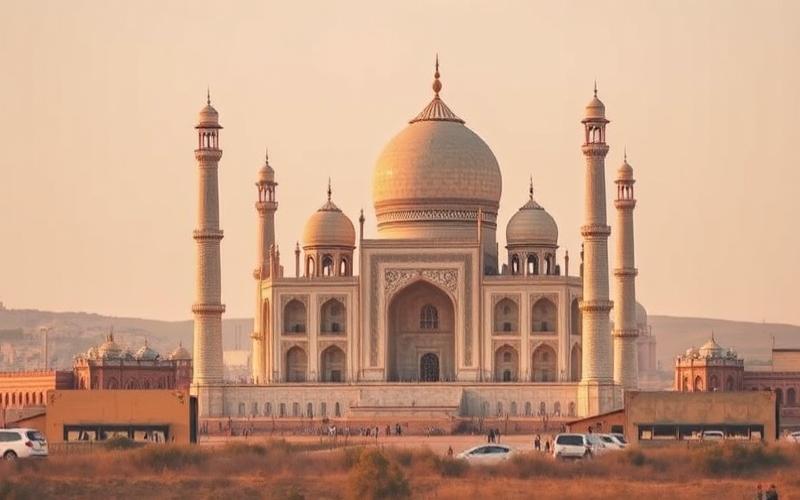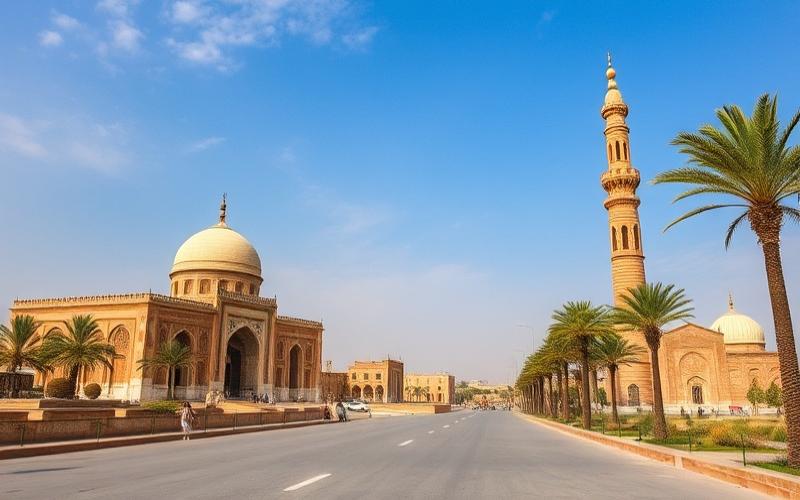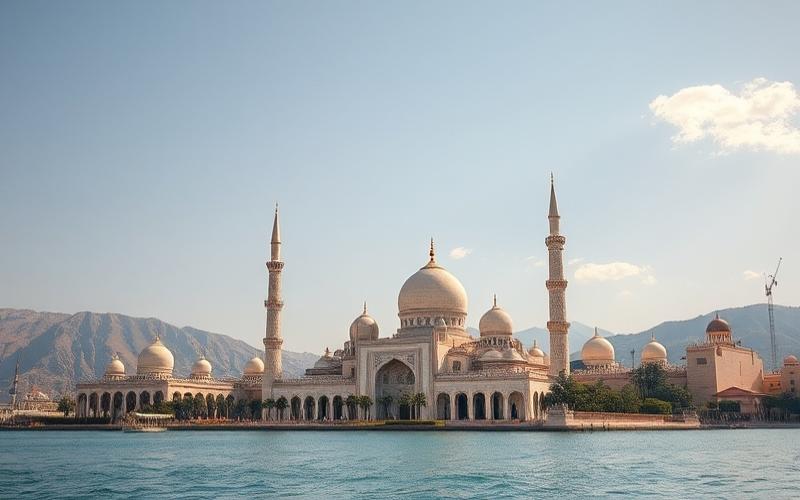
 Published on and written by Cyril Jarnias
Published on and written by Cyril Jarnias
At the crossroads of ancient traditions and growing modernity, Bahrain presents a complex landscape regarding LGBTQ+ rights. While the kingdom, known for its relative religious tolerance within the region, offers a space where certain individual freedoms can flourish, LGBTQ+ community members nevertheless navigate an often hostile environment marked by restrictive laws and conservative societal norms. This article explores how, despite these challenges, a network of resilient communities and support groups is emerging to defend authenticity and fundamental rights, outlining the contours of a society where inclusion could be more than a distant dream.
Analysis of LGBTQ+ Rights in Bahrain
Historical Overview
- Homosexuality was illegal in Bahrain during the British protectorate period, under laws inspired by colonial law.
- In 1976, Bahrain adopted a new penal code that decriminalized consensual homosexual relations between adults.
- Since the 1990s, it has been possible to publicly address homosexuality, distinguishing Bahrain from many Gulf neighbors.
Current Laws Concerning the LGBTQ+ Community
| Area | Situation in Bahrain |
|---|---|
| Same-sex sexual relations | Legal since 1976 for consenting adults |
| Same-sex marriage | Not recognized |
| Adoption by same-sex couples | Not permitted |
| Recognition of gender identity | Legal gender change possible in some cases since 2007, but subject to strict criteria |
- Laws against “indecency,” “debauchery,” or “immorality” are used to target sexual and gender minorities, allowing for arrests, fines, or even deportations.
- Transgender individuals can, in some cases, obtain legal gender changes, but only if deemed consistent with the dominant religious interpretation.
Legal Protections Against Discrimination
There are no laws explicitly protecting against discrimination based on sexual orientation, gender identity, or expression.
LGBTQ+ individuals can be fired, denied services, or harassed without specific legal recourse.
Existing Rights and Legal Gaps
- Rights:
- Decriminalization of homosexuality.
- Limited possibility for transgender individuals to change civil status.
- Gaps:
- Complete lack of recognition for same-sex couples.
- No rights to adoption or parenthood for LGBTQ+ individuals.
- No protection against discrimination in employment, housing, or access to healthcare.
- Arbitrary enforcement of morality laws to target sexual and gender minorities.
Testimonials and Lived Experiences
- Media have reported cases where transgender individuals were prosecuted for “indecent behavior” due to their appearance or clothing not conforming to their birth-assigned gender.
- In 2014, two women were able to officially change their gender, but these are very rare exceptions.
- In practice, LGBTQ+ individuals often face social stigma, family pressures, and police harassment.
- In 2022, Bahrain banned a film featuring homosexual characters, illustrating the persistence of institutional homophobia.
Influence of Social Movements and Initiatives
- LGBTQ+ movements remain discreet and informal due to the repressive social and legal context.
- International NGOs, such as Human Rights Watch, regularly denounce the discrimination and pressures faced by the community.
- Parliament debated laws in 2016 and 2017 aimed at criminalizing “resembling the opposite sex,” but these bills were not adopted.
- Recent government initiatives in favor of LGBTQ+ rights are almost nonexistent; the focus is primarily on maintaining moral order.
Regional Comparison
| Gulf Country | Decriminalization of Homosexual Relations | Legal Gender Change | Anti-Discrimination Protections | Criminalization of Gender Non-Conformity |
|---|---|---|---|---|
| Bahrain | Yes (1976) | Possible | No | Not explicit, but arbitrary enforcement |
| Saudi Arabia | No | No | No | Yes (sharia) |
| Kuwait | No | No | No | Yes (specific law from 2007) |
| United Arab Emirates | No | No | No | Yes (federal law) |
| Qatar | No | No | No | Yes (morality laws) |
| Oman | No | No | No | Yes (law adopted in 2018) |
Bahrain stands out for decriminalizing homosexual relations and a certain relative tolerance for public discussion, but remains far behind in recognizing civil rights and protecting against discrimination.
Future Challenges for the LGBTQ+ Community in Bahrain
- Strengthen legal protections against discrimination.
- Achieve recognition for LGBTQ+ couples and families.
- Combat social stigma and exclusion.
- Encourage the development of community organizations capable of public action.
- Overcome regional and religious pressure hindering any significant progress.
The LGBTQ+ community in Bahrain benefits from historical decriminalization but still faces an almost total absence of civil rights and protections, along with strong social stigma. The regional context remains particularly hostile, making future advances uncertain and dependent on both legal and societal evolution.
Good to Know:
In Bahrain, same-sex marriage and adoption remain illegal, and the absence of specific laws against discrimination based on sexual orientation increases the vulnerability of LGBTQ+ individuals. Despite sporadic government initiatives, progress remains slow compared to other Gulf countries, and the community continues to mobilize for more legal protections.
Local LGBTQ+ Communities and Their Role
Overview of Main LGBTQ+ Communities in Bahrain
The LGBTQ+ community in Bahrain consists mainly of informal networks, often created online or in private spaces. Their formation accelerated after the Arab uprisings, with an increased desire for visibility and mutual support despite the secrecy imposed by the legal and social context. The Ahwaa initiative, founded in 2010 by a Bahraini activist, is emblematic of this evolution: it aims to connect LGBTQ+ individuals in the Gulf via a secure digital platform, fostering discussion and the organization of discreet events.
- Online support groups
- Informal meetings in safe spaces
- Regional digital platforms like Ahwaa
Daily Role of Communities for LGBTQ+ Individuals
Local communities play a crucial role in:
- Emotional Support: Creating spaces where it’s possible to express experiences without fear.
- Social Organization: Setting up small private gatherings (isolated cafes, apartments) allowing members to meet away from public view.
- Discreet Awareness: Exchanging information on mental health, human rights, and regional news.
| Main Role | Concrete Example |
|---|---|
| Emotional Support | Anonymous forums on Ahwaa |
| Social Events | Meetings in private cafes |
| Awareness | Virtual campaigns on social networks |
Initiatives for Acceptance and Visibility
Despite the high risk, a few initiatives mark community life:
- Discreet organization of discussion groups around coming out or identity issues.
- Anonymous or pseudonymous dissemination on Instagram/Twitter to promote inclusion.
- Indirect participation in regional campaigns (e.g., joint statements during unjust arrests).
Specific examples:
Physical meetings organized via Ahwaa
Collective sharing during social or political crises
Challenges Faced by These Communities
The main obstacles are:
- Severe legal restrictions prohibiting any public form of LGBTQ+ expression
- Major social risks (family ostracism, physical violence)
- Increased digital surveillance
In response:
Widespread use of pseudonyms and digital encryption
Transnational solidarity with other Gulf countries
- Laws criminalizing homosexuality
- Family pressures
- Social stigma
- Constant fear due to lack of protection
Community responses:
- Exclusive use of secure platforms
- Very strict selection for physical meetings
- Strengthened mutual moral support
Local Testimonials
“There is still far too much fear to show who I am. But knowing that several of us are connected every night gives me the necessary courage.” – Anonymous member
“Thanks to the secret WhatsApp group created by my Bahraini friends, I was able to speak freely after my coming out.” – Testimony collected via regional platform
“Without this discreet network I found through social media, I would never have dared to live my true identity.” – Local activist under pseudonym
Impact of Digital and Social Media
Digital communication has revolutionized community organization:
- Easier access to an expanded regional network
- Preserved anonymity through encrypted messaging (Signal/Telegram)
- Rapid mobilization during serious incidents (arrests/discrimination)
- Instant sharing of educational or legal resources
Technological development thus enables unprecedented solidarity despite a hostile environment.
Strategic Importance for Regional Progress
These micro-networks now constitute an essential pillar:
| Local Effect | Regional Effect |
|---|---|
| Breaks isolation | Strengthens transnational mobilization |
| Promotes mutual aid | Inspires similar initiatives within the Gulf |
Their very existence—though fragile—slowly but surely contributes to the public debate on human rights throughout the Gulf-Arab region. The modest successes achieved positively influence neighboring movements and gradually raise awareness among certain local progressive segments.
Good to Know:
In Bahrain, despite legal restrictions, LGBTQ+ communities primarily organize online, providing a vital space for support and awareness; private groups on social networks facilitate exchanges and the organization of discreet events to strengthen bonds and promote LGBTQ+ rights.
Life of LGBTQ+ Expatriates in Bahrain
LGBTQ+ expatriates living in Bahrain face significant challenges related to local legislation and social perception of sexual and gender diversity.
Main Daily Challenges:
- Bahrain’s laws do not explicitly prohibit homosexuality, but there is no protection against discrimination based on sexual orientation or gender identity. Laws on public decency or indecency remain vague and can be used to target LGBTQ+ individuals.
- It is not possible to marry, adopt, or officially change gender for transgender individuals. Thus, the rights of LGBTQ+ individuals are very restricted.
- Bahraini society remains largely conservative. LGBTQ+ visibility is low, and fear of rejection, ostracism, or harassment pushes most expatriates to remain discreet about their identity.
- The absence of independent media and censorship make LGBTQ+ visibility and activism almost impossible.
Social Perception and Lifestyle Adaptation:
LGBTQ+ expatriates often adopt a very cautious attitude: discretion about their private life, avoidance of public displays of affection, and adaptation of their speech depending on the context.
Some expatriates report that their foreigner status offers them a form of distance or tolerance, but this does not guarantee the absence of risks.
Several expatriates explain that integration involves a form of education and adaptation: “Not having a confrontational style by imposing my homosexuality on others, my relationships have always been very peaceful with local populations…”
Many choose to preserve their identity in private and compartmentalize their social life: “conforming” professional and social life in public, self-expression in safe circles or online.
Resources and Support Networks:
| Resource | Description |
|---|---|
| Online Communities | Closed groups on social networks, private forums, secure dating apps |
| Informal Support Groups | Discreet meetings among LGBTQ+ expatriates, often through co-optation or word-of-mouth |
| International Organizations | Human Rights Watch, ILGA, foreign consulates that can provide information and emergency assistance |
- Access to these resources remains limited and requires great vigilance to avoid denunciation or infiltration.
- Social networks are used cautiously, and expatriates prefer secure or anonymous platforms.
Personal Testimonials:
Several expatriates report that discretion is a daily necessity:
“Here, I never talk about my private life to my colleagues. I don’t use my real name on dating apps. Everything must remain very compartmentalized.”
For others, expatriate life paradoxically allows a form of relative freedom, provided they adapt:
“My expat status offers me some protection, but I am very careful about who I confide in. I meet LGBTQ+ friends in closed circles, but never in public.”
List of Adaptation Strategies:
- Be discreet about one’s identity in public and professional spaces.
- Use pseudonyms or anonymous profiles online.
- Regularly inform oneself about legislation and social developments.
- Maintain a trusted network with other expatriates or international contacts.
- Resort to consular services or NGOs in case of serious problems.
Living in Bahrain as an LGBTQ+ expatriate requires constant vigilance, strong cultural adaptation, and reliance on informal networks to preserve both safety and identity.
Good to Know:
LGBTQ+ expatriates in Bahrain often must navigate discreetly due to restrictive laws and social stigma; turning to online groups and informal meetings is crucial to access support and preserve their identity.
Disclaimer: The information provided on this website is for informational purposes only and does not constitute financial, legal, or professional advice. We encourage you to consult qualified experts before making any investment, real estate, or expatriation decisions. Although we strive to maintain up-to-date and accurate information, we do not guarantee the completeness, accuracy, or timeliness of the proposed content. As investment and expatriation involve risks, we disclaim any liability for potential losses or damages arising from the use of this site. Your use of this site confirms your acceptance of these terms and your understanding of the associated risks.

